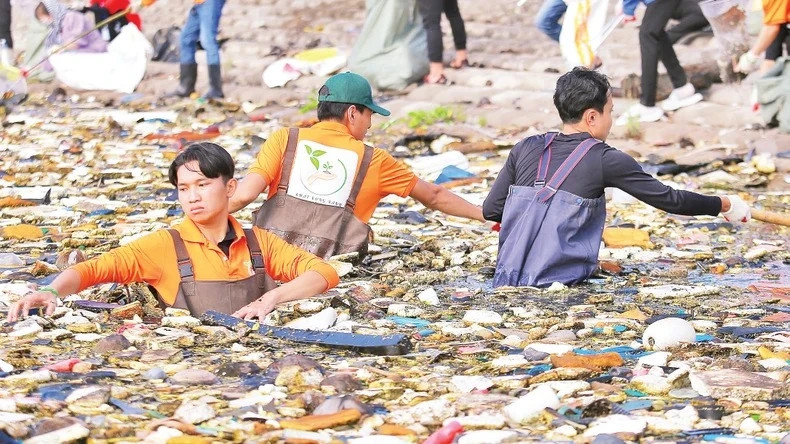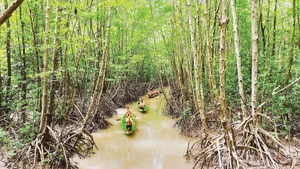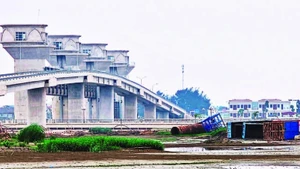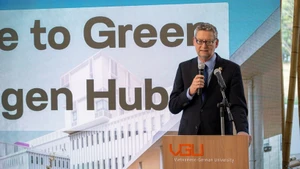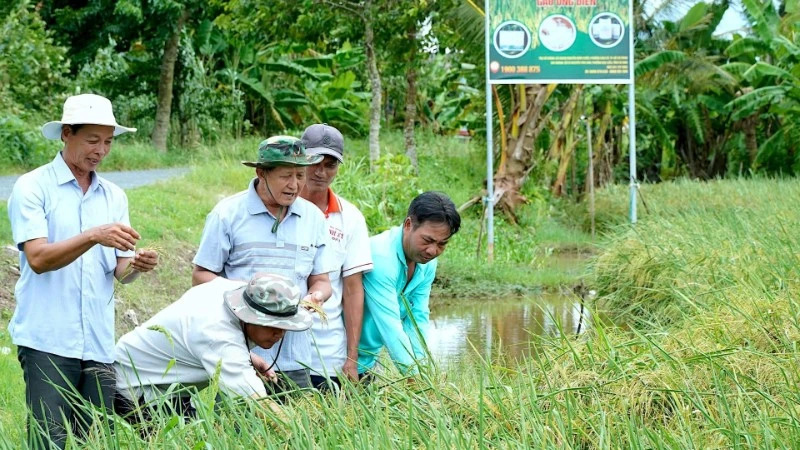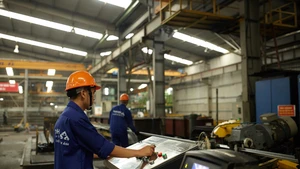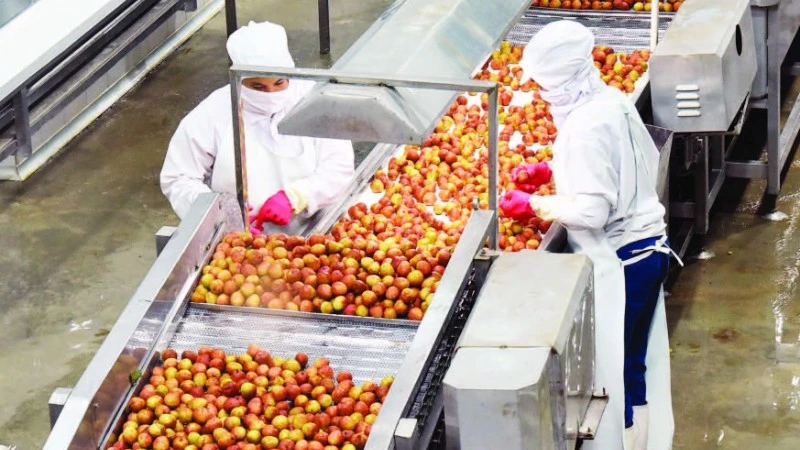According to the Ministry of Natural Resources and Environment, the plastic consumption index per capita in Vietnam increased very rapidly, from 3.8 kilogrammes per year per person in 1990 to 4.1 kilogrammes per year per person in 2015 and currently about 54 kilogrammes per year per person. The increased plastic consumption leads to increased plastic waste, risk of white pollution, and pressure on the environmental management system if it is not managed effectively and scientifically.
Over the past years, the Government of Vietnam has actively participated and proposed global and regional cooperation mechanisms to reduce plastic waste at the expanded G7 Summit in Canada (2018) and the World Economic Forum (WEF)’s annual meeting in Davos, Switzerland (2019).
Notably, at the WEF Davos Meeting in 2019, the Minister of Natural Resources and Environment of Vietnam and representatives from the WEF signed a Letter of Intent for strategic cooperation on the issue of plastic waste and building a circular economy to support Vietnam to participate in the Global Plastic Action Partnership (GPAP) initiative and achieve the goal of innovating sustainable plastic production and consumption models. It has also created a foundation for policies, actions, and solutions to effectively treat plastic waste and minimise the impact of plastic on the environment.
To implement the Global Plastic Action Partnership (GPAP), the “Strengthening plastic waste management in Vietnam” project was approved by the Prime Minister in 2021. On November 19, 2021, the Minister of Natural Resources and Environment issued Decision No. 2268/QD-BTNMT on the establishment of a working group of the NPAP in Vietnam.
The group is responsible for advising the Minister of Natural Resources and Environment on policies, solutions, and strategic directions for the NAP in Vietnam; supporting Vietnam in completing the Project of “Strengthening plastic waste management in Vietnam”; sharing experiences and knowledge about plastic waste management, to carry out a circular economy, knowledge economy, and high technology applications, to reduce plastic emissions in Vietnam.
Evaluating the initial results of the NAP, Director of International Cooperation under the Ministry of Natural Resources and Environment Le Ngoc Tuan said, that since its establishment, the group has made many proposals related to support, policies, innovation, investment opportunities, and opening up financial flows for practical solutions, to solve the plastic waste and pollution in Vietnam.
Specifically, the launching of the Innovation and Financing technical group has supported the working group of the NAP in implementing activities through the strategic pillars of the NAP. In the context that countries around the world are working towards a global agreement on plastic pollution, which is expected to be adopted in 2024, the NAP has actively coordinated with partners to develop a network of connections with ministries, branches, international organisations, domestic and foreign businesses, non-governmental organisations, and research institutes, through consultation workshops and sideline events at intergovernmental negotiation sessions, demonstrating a determination to manage and reduce plastic waste through the approach of the circular economy.
Under the direction of the Ministry of Natural Resources and Environment, the coordination and technical support of the United Nations Development Program (UNDP) in Vietnam, the NAP programme has developed and expanded the participation network with nearly 200 businesses and organisations connecting and sharing knowledge, experience and perspectives on issues of common concern related to negotiating a global agreement on plastic pollution, innovation and creativity to reduce plastic pollution and mobilise finance and investment in solutions to treat plastic waste and pollution, and the solutions that contribute to implementing extended producer responsibility (EPR).
The programme has also worked with the UNDP and partners to support Vietnam in discussing research directions and building a database on plastic production, import, consumption and leakage of plastic waste on land and at sea to serve the negotiation process towards a global agreement on plastic pollution; develop a research report, evaluate the situation of plastic waste generation and management; evaluate the situation of plastic waste generation and management; and propose solutions and roadmaps to reduce plastic waste pollution in Vietnam.
Notably, in 2023, with data from technical group members and members of the NAP network, a map of initiatives and innovative solutions has been built and continues to be updated and improved in the near future. Currently, 40 innovators have completed testing through the incubation and acceleration stages in 138 programmes, projects and initiatives on reducing waste and pollution in Vietnam or regional projects with Vietnam-related components. Seven impressive innovation initiatives and projects from innovators assessed to have the capacity and ability to impact were introduced and promoted through the NAP platform. In addition, with resource support from the Canadian Embassy and technical contributions from the Vietnam Women's Union, the NAP has implemented and promoted the integration and strengthened the role of women and inclusive issues in plastic waste management.
Deputy Minister of Natural Resources and Environment Vo Tuan Nhan said in 2024, in the context of global and domestic efforts to address plastic pollution, the world expects to approve a global treaty on plastic pollution by the end of 2024, as well as many of Vietnam's policies on waste management and treatment, including plastic waste, will be officially implemented.
Therefore, the Ministry of Natural Resources and Environment requests that the group continue to promote responsibility and initiative in carrying out research and development activities, offering many new solutions and promoting innovation. At the same time, the partner network will be expanded, and the participation of all communities will be called for to realise the common goal of the NAP, thereby contributing to efforts to realise commitments of the Government on reducing plastic waste pollution.
